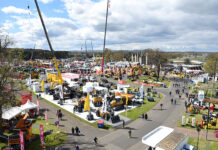
A former JCB engineer has made a ‘life-changing bequest’ to a Staffordshire school dedicated to nurturing future engineers.
Bill Turnbull spent almost a decade working at JCB as chief engineer and helped to develop the company’s first ever mini excavators. He retired in 1995 at the age of 65.
When he died in 2019, he left more than £4.2 million in his will thanks to an investment he made more than 50 years earlier in a 1937 Bugatti Type 57S – paying just £1,500 for the car. He had been restoring the vehicle in secret in the workshop of his home in Tean. Only 42 of the cars were ever produced at the factory in Molsheim, France.
Bill Turnbull left instructions to his executors to make discretionary bequests from his estate. The JCB Academy in Rocester has been given £125,000 towards the construction of an automation and robotics centre. The new facility will be called the Bill Turnbull Suite in memory of the benefactor.
“Bill was a very humble man and also an extraordinary engineer, who never forgot his links to JCB and the friends he made while working there,” said executor John Seddon. “He would be absolutely thrilled to think that a bequest had been made to the JCB Academy and will be used to develop the next generation of engineers in the UK.”
JCB chairman Lord Bamford said, “Bill was a remarkable and talented engineer. This is a very fitting tribute to his lifelong devotion to engineering and will ensure his memory is kept alive for future generations following in his footsteps.”
JCB Academy principal Jenny McGuirk added, “This bequest really does put the JCB Academy in the premier league for the teaching of engineering. Robotics and automation are critical to the future and this generous bequest gives us the most technologically advanced equipment to deliver the curriculum.”
Born in New Zealand in 1930, Bill came to live in the UK in 1960. He and his twin brother Bob were classic car enthusiasts and in May 1969, Bill bought the Bugatti Type 57S, complete with black paintwork and cream interior. He still owned it on his death and in February this year, it sold at auction in London for more than £4 million.











